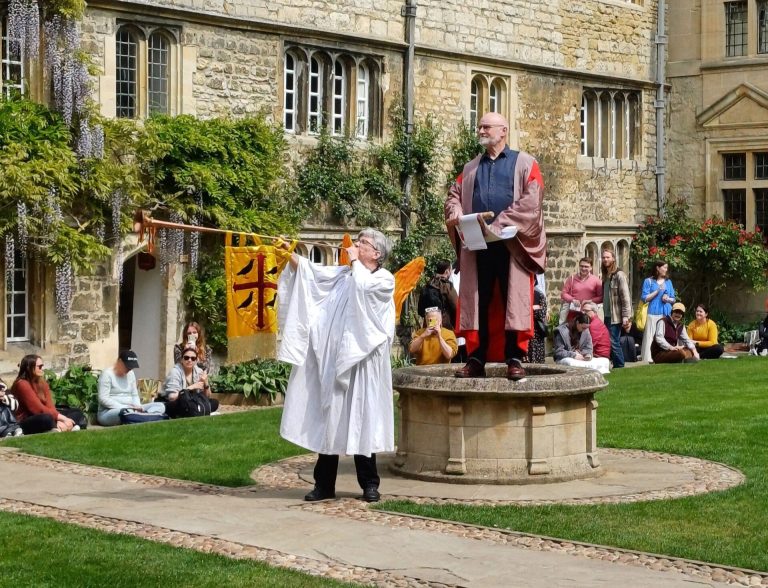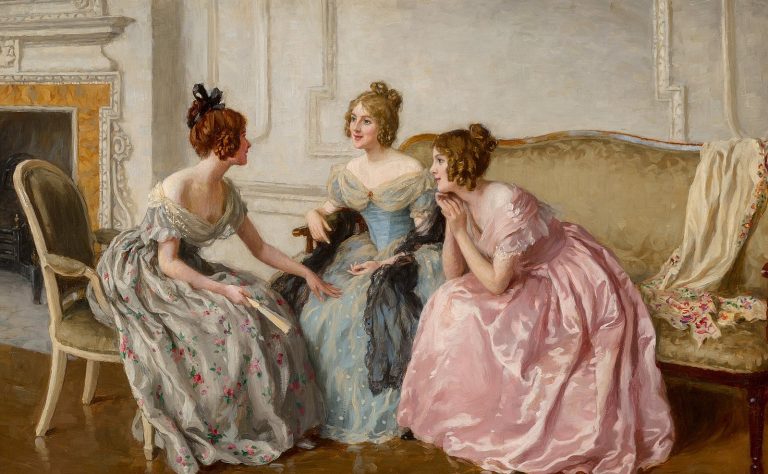The Longest Goodbye
Oxford. A place where I travelled outward and inward—toward a version of myself I didn’t know was possible. The part I usually kept quiet finally had space to be. The part beneath everything else. The root. The quiet center. The truest me.
That part was finally met with understanding—and maybe that’s what let me breathe differently. I became a self that no longer needed to make sense to the world I came from, the one that never reflected me back. Oxford became a home I hadn’t known I was missing—a place that understood me without asking.
This story is also about someone I met in the stillness of that bloom—a final-year PhD student I crossed paths with while I was there for a summer course, both of us at the University. He became part of what changed everything.
The day we met, I planned to leave for London with some peers that evening. I made time for him. We settled on four. When he asked where to go, I said I didn’t know—he was the local. He offered a walk through his college, St. Cross. Small, quiet. He hadn’t been back in a year.
Four o’clock. I’ll come to Worcester, he said. That was where I stayed then.
I left my room early, then paused to check the weather. Rain, starting at four.
I asked if he’d brought an umbrella. No, he thought the weather was good. I told him it changed fast. I didn’t want to get soaked. He said we’d just get a little wet.
Still, I turned back for the clear plastic umbrella the college left me.
When I got to the gate, the rain had started.
He was already there.
I’m here, he texted. Against the wall, trying to stay dry.
I opened the door halfway. The stone path was dark; the grass wet. But he wasn’t in view. Still in the doorway, I texted again: Where are you?
Just walk out, and you’ll know.
The rain swept in—fast and sudden. The wind pushed it in sheets across the ground, meeting us with every step. It pressed us shoulder to shoulder, but not close enough to stay dry. My white shirt, soaked through, translucent. His sleeves stuck to his arms.
The hard rain left behind a soft trace of closeness. Even now, the rain brings back memories of that first one—the one that left us happily soaked and softened something unspoken.
We didn’t see each other again—just texts. A few days later, he asked if we could’ve been something, had I been starting school in Oxford that September instead.
He said he felt something—strong and sudden—the first time he saw me.
I didn’t know what to say.
He said being with me felt natural.
And I saw it too—in his smile, his laugh, the way he looked up from the table soccer at St. Cross, and at the golden retriever pendant tucked oddly among antiquities at the Ashmolean. A quiet happiness. Light, and understood.
Yet I was guarded—not for lack of feeling, but because I didn’t believe things like that could be real. He never mentioned it again.
But he never took it back.
Some stories aren’t found in photographs, endings, or clarity. They live in the ache of what never formed—in the space before it could, in the timing that almost aligned, but didn’t. That’s why he lingered—not in my life, but in the memory of being fully understood by a place, and of being quietly witnessed within it.
His presence felt like that too—quiet, steady, safe. A kind of comfort I had never named before. Subtle. Unexplainable.
But I felt it—when he crossed the street in front of Christ Church, tired from lab work, walking toward me for what would be our second and last time seeing each other.
We grabbed drinks and walked along the Oxford Canal to Port Meadow.
It was my last day. Despite other commitments, we met again.
Drinks before the last call. A final walk through Oxford.
Talking until it was late.
Then, he walked me back to Worcester—to where we first said hi, and now, bye.
After that night, everything was different.
Morning still came, no matter how I stretched the time.
I had to leave while the city was still asleep.
Even when the chapter closed, I left pages blank—waiting for silence to return as sound.
I never said goodbye to Oxford. I couldn’t. It was a moment in time. A breath held between what was and what almost was. I kept it lit like a flame cupped in my hands—stinging every inch of my skin to keep it shielded from rain, from distance, from forgetting.
And him—he became part of the way it felt to be in Oxford. Part of the way Oxford made me feel. Some things stay not because they last, but because they never finish becoming—in unanswered questions and lingering silences.
What’s deeply loved stays layered in memory. How could it have ended, when I revisit it every day? When even distance and time couldn’t undo what it gave me?
Now, when I look at stars, I think of that night—quiet streets, the hush before goodbye, the pause outside the astronomy building under the clearest sky.
When it rains, I remember the kind that pressed soft and marked deep.
When I taste a Long Island, it brings me back to the bar above the Covered Market—sitting across from him, the city hushed beneath us, the buzz around us fading into the rooftops that held our stillness.
And then there’s Oxford itself.
Not just a place—but a name that holds everything:
The way I was.
The way we were.
The way we could have been.
Sometimes, care outlives connection.
Sometimes, love never calls itself by name.
But it was there.
Some part of it always will be.
And maybe I still hold onto the possibilities—quiet in their stubbornness, loud in every intentional act of keeping Oxford close.
Maybe Oxford hears it—the longing carried across the distance.
I applied to Oxford. And Oxford invited me to stay.
The what-ifs still live somewhere in me.
What if the streets remember?
What if the gates of Worcester open again, at the right time?
What if we return—not to what was, but to something that still wants to become?
But even if I return alone, Oxford will still be there.
And I will walk those paths as someone who once loved there.
And in these unspoken moments—maybe the stars started to align. He once said he would’ve left Oxford by the time I could make it there. But change outwits even carefully drawn plans. And maybe I’m arriving sooner than his planned impossibilities ever allowed.
And maybe—just maybe—possibilities grow quietly, unknowingly. Like the blooming magnolia outside his windows—the one he showed me in a photo this spring, a quiet gesture after time and silence, like the way it bloomed again. Rooted before they are seen. Soft before they are certain. Becoming something only time and season can draw into fullness—reaching upward, as though guided by memory. Waiting just beyond the glass, beside his desk. A presence not too close, not too far. Asking nothing. Staying—until he looks up, not seeking, but still finding what’s been there all along.











